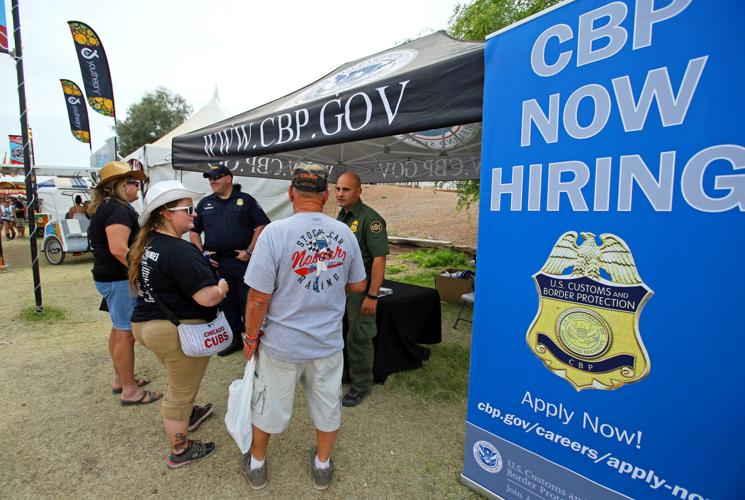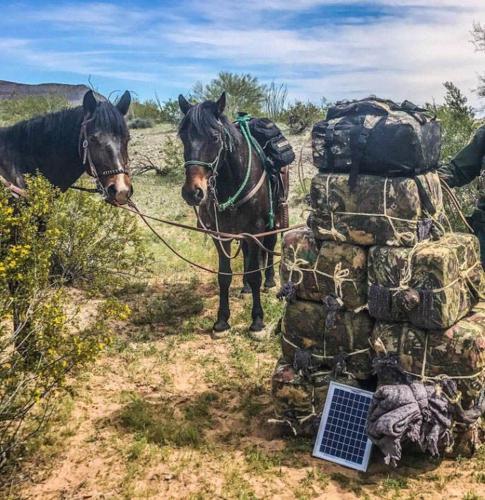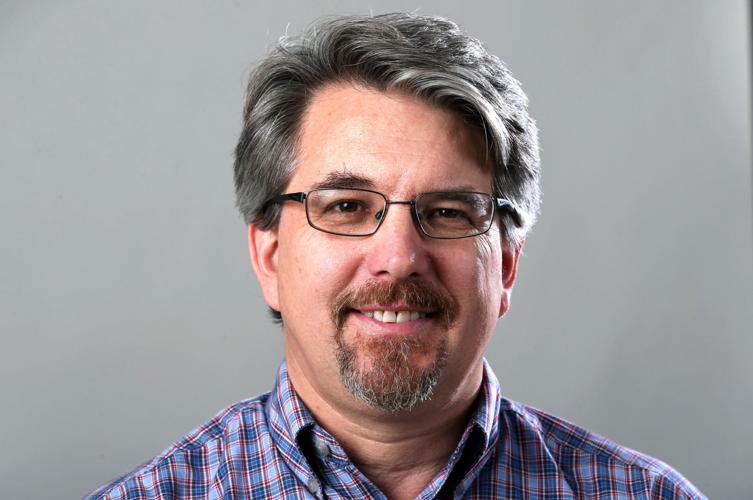When two Border Patrol officers went to the UA on a recruiting trip March 19, a jeering student interrupted and said their presence meant the campus was not a “safe space for students.”
The video went viral, as you probably know, becoming the subject of two letters from the university president and nationwide controversy. Now the two main students involved are facing misdemeanor charges for their interruption of the event.
What the student didn’t grasp, in complaining that the agents made campus unsafe, is that a university campus is not exactly a safe space for agents, either. They crossed a sort of border between red and blue America to enter the contested terrain of the college campus. And that’s why it’s good the agents were there, why it’s good any time agents venture outside of the most welcoming venues to find new recruits.
The Border Patrol is not going to disappear, although it is having trouble keeping up with attrition, let alone adding 5,000 agents as the president ordered two years ago. The patrol serves a purpose — stopping people and cargo from crossing the borders between ports of entry. As long as it exists, we need the agency to recruit as widely as possible, to represent the demographics of the country as much as possible, not represent an increasingly narrow slice of society, loved by some and alien to others.
You want to see a safe space for agents? Go to Country Thunder, the music festival that starts April 11 up in Florence. For two years, the agency has had a recruiting booth at the music festival, where you’re likely to find a lot of support for the agents, certainly more than on the UA campus.
Or go to Professional Bull Riders events. Specifically, you might try the agency-sponsored U.S. Border Patrol Invitational, last held March 9-10 in Duluth, Georgia. Again, this is deep in the cultural comfort zone of the Border Patrol.
In 2017, a Border Patrol recruiting coordinator explained why the agency had started setting up a booth at Country Thunder, and I think in doing so she indirectly explained why they need to go to universities, too.
“We ask recruits coming in what they like to do in their off time to see what areas we should look at,” Kelly Ursu told Cronkite News. “A lot of applicants ... have expressed interest in Country Thunder or music festivals.”
While that could be a productive strategy, you can see how going back to the same places and events that existing agents enjoy would tend to reinforce an agency’s culture, narrowing it down to its social essence, rather than broadening it.
You can see the narrowness of the agency’s culture reflected in the increasing political radicalism of the National Border Patrol Council, the agents’ union. Emboldened by its close relationship with the president, the union has increasingly taken sides in battles within the broader culture war where it has no particular business. For example, the union has repeatedly allied itself with groups that not only oppose illegal immigration but also want to limit legal immigration, such as the Federation for American Immigration Reform.
And in responding to the treatment of the agents at the UA protest, the union enlisted the help of Judicial Watch, a conspiracy-mongering group that has tried over the years to perpetuate border myths such as that ISIS was operating a training camp in Mexico a few miles from El Paso. (Judicial Watch also was behind the false report last year that Noam Chomsky is paid $250,000 per year by the UA, rather than the real figure, $62,500.)
Wondering about recruitment and the agency’s culture, I spoke with a couple of men with deep Tucson ties who are recently retired from the Border Patrol. Victor Manjarrez, a Tucson native who rose as high as sector chief in the agency, told me that inevitably there are only so many people interested in joining.
You have to be interested in working outdoors, by yourself, with minimal supervision, guided in part by intuition, said Manjarrez, who is associate director of the Center for Law and Human Behavior at the University of Texas at El Paso.
“At the same time, you’ve got to be compassionate,” Manjarrez said. “Like any other profession, it’s only going to attract a certain number of people.”
Once the agency has successfully recruited an agent and brought the person on board — something that happens with only about 1 out of 100 applicants, according to the Government Accountability Office — then the agent has to be willing to live in a relatively remote place and work some of the less glamorous jobs.
“As a new guy, you don’t get the best assignments,” Manjarrez said. “You get processing, or you get to watch the fence rust.”
The other patrol retiree I spoke with, Chris Montoya, went to college before he joined the patrol, at New Mexico State University. He became a supervisor in the agency, a firearms instructor, but eventually the big issues of migration and history started to bother him. While still working as an agent, he started pursuing a master’s degree in Latin American Studies at the University of Arizona, a degree he finished after retiring in 2017.
“I wanted to learn more about the border, because I didn’t know anything about it,” Montoya said.
Being in the patrol had only given him a narrow view, he discovered. And he hopes that more university students join the patrol to bring a different perspective to the border than the more common, black-and-white one he saw among agents just trying to get through their shifts.
“A lot of the kids at universities tend to be a little sharper than the average agent and think a little more deeply about the problem,” he said.
That comment will undoubtedly feel like an insult to some agents — a college education isn’t the only path to wisdom, of course, and Montoya knows that. But the broader point remains — that it’s good to have people coming out of all walks of life into the agency, so it’s a more mixed, representative culture.
Then maybe the union wouldn’t respond the way the National Border Patrol Council Local 2544 did upon hearing of the criminal charges against students Denisse Moreno Melchor, 20, and Mariel Alexandra Bustamante, 22. The union posted on Facebook, “Is it enough? Local 2544 does not believe it is.” They went on to demand a public apology and additional consequences for the students, beyond the misdemeanors.
How about this? Instead, focus on building a better system of dealing with the universities, so the campuses are a safe space for recruitment but where undocumented students are also guaranteed no reason to fear.






